3PL Meaning
3PL Meaning: Value for Shippers
"3PL" has emerged as a pivotal term. It stands for Third-Party Logistics and holds substantial significance. This article aims to explain the meaning of 3PL and uncover its immense value for shippers. Join TLI as we explore the transformative impact of 3PL in contemporary logistics.
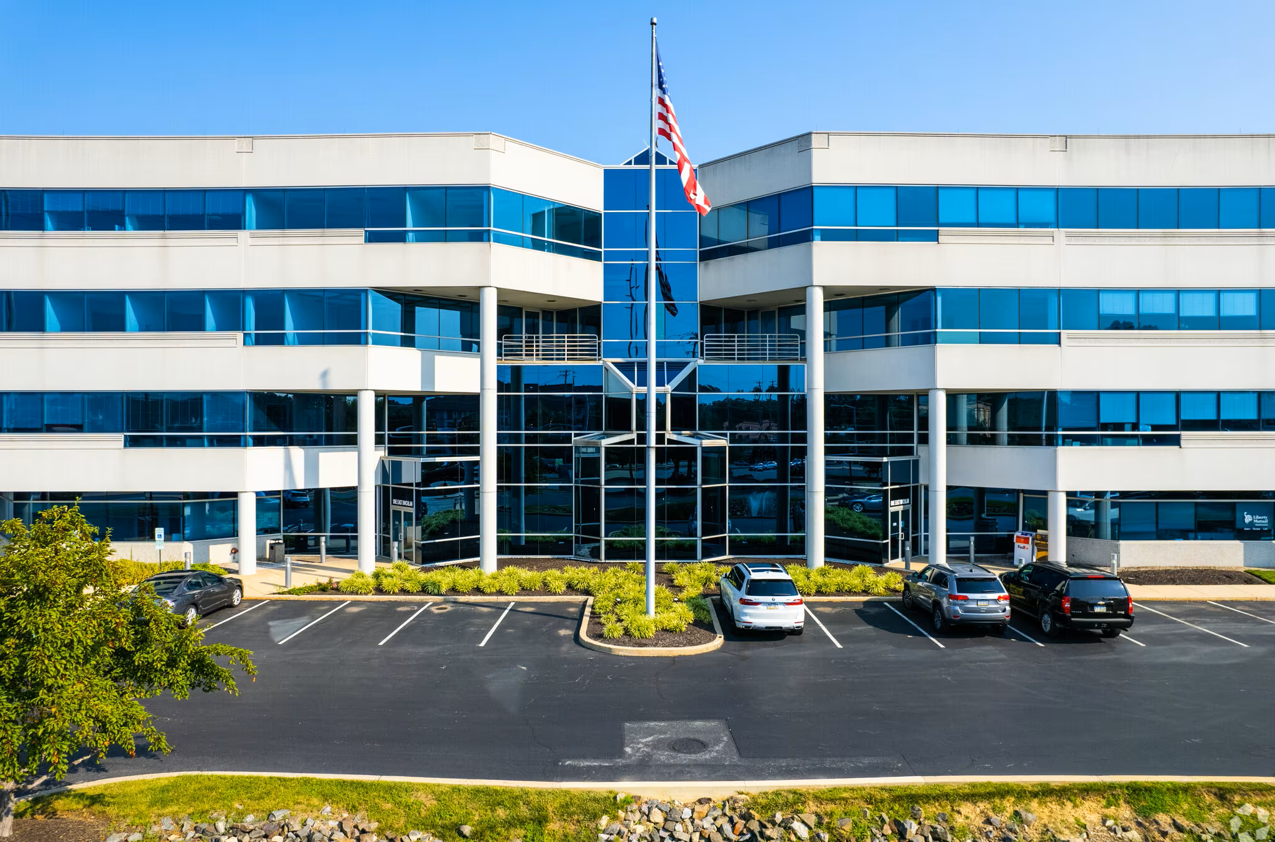
3PL Meaning
What exactly does "3PL" mean? Third-Party Logistics is the practice of outsourcing logistics and supply chain management tasks to an external service provider. These providers, known as 3PLs, serve as intermediaries between shippers and carriers, handling a broad spectrum of logistics operations on behalf of businesses. Business operations include cargo claims, freight invoice audit, dynamic rating engines, transportation RFPs, and many more managed transportation services. Today, shippers are in search of partners who not only oversee shipments but also bring strategic value by streamlining supply chain processes.
By integrating a Transportation Management System (TMS) alongside 3PL services and embedding these functions into a shipper's Enterprise Resource Planning (ERP) system, shippers gain enhanced control and visibility throughout the supply chain. Integration is critical to maximize the utility of supply chain analytics and logistics data.
Centralizing logistics data within the ERP system provides shippers with real-time insights into shipment statuses, benchmarks, Key Performance Indicators (KPIs), and carrier performance metrics. This logistical data serves as the foundation for making informed strategic decisions, enabling businesses to optimize load consolidation, hold vendors accountable, reduce transit times, and ultimately cut costs.
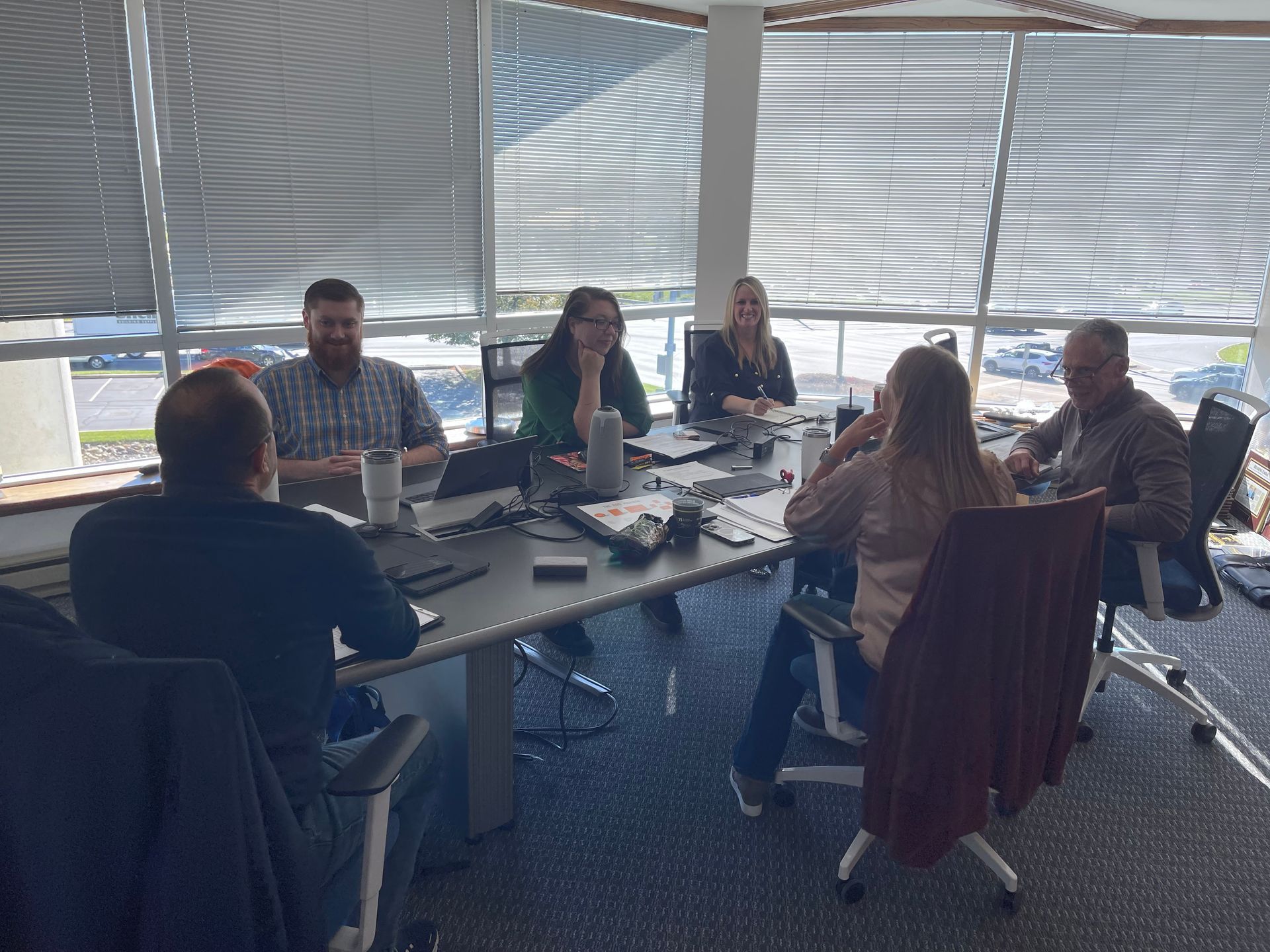
3PL Solutions:
- Enhanced Shipping Flexibility: 3PL providers empower shippers to adjust their operations according to business needs swiftly. Leveraging the expertise and resources of 3PL providers, shippers can promptly respond to market fluctuations, seasonal demands, or sudden surges in order volumes. This agility streamlines operations, cuts costs, and upholds customer satisfaction.
- Freight Brokerage Expertise and Experience: Partnering with a 3PL provider grants access to a wealth of knowledge and industry expertise. 3PL providers specialize in logistics management and stay abreast of the latest transportation industry news, regulations, trends, technologies, and best practices. By leveraging this expertise, shippers can optimize their supply chain processes, enhance operational efficiency, and mitigate risks.
- Resource Optimization: Supply chain management entails a diverse array of tasks, from warehousing and inventory management to transportation and distribution. 3PL providers offer integrated solutions to manage these activities, leveraging their extensive network of warehouses, transportation assets, and TMS technology platforms. Shippers benefit from economies of scale as 3PL providers optimize resource allocation, resulting in cost savings and improved efficiency.
- TMS Technology-driven Solutions: In today's digital age, 3PL providers harness advanced freight technologies to streamline logistics operations. They utilize state-of-the-art transportation management systems (TMS) and track-and-trace technologies to ensure visibility and efficient order fulfillment, essential for accurate inventory management. This technological prowess provides shippers with valuable insights on inbound and outbound shipments. TMS technology also empowers data-driven logistics decisions and enhances customer experiences.
- Focus on Core Competencies: Outsourcing logistics functions to a 3PL provider like TLI enables shippers to focus on their core competencies and strategic initiatives. By delegating time-consuming tasks such as order fulfillment, warehousing, and transportation management, businesses can allocate resources to product development, sales, marketing, and customer relationship management, gaining a competitive edge in the market.

3PL Meaning
TLI consistently proves itself as the top choice for shippers seeking to optimize their supply chain operations and unlock their business potential. With over three decades of industry expertise, Translogistics (TLI) has cemented its position as a reliable and trustworthy partner for global shippers. The benefits of the term third-party logistics encompass enhanced supply chain efficiency, streamlined operations, and strategic partnership opportunities. TLI's steadfast commitment to delivering value through its comprehensive managed transportation service offerings, and cutting-edge TMS technology (Viewpoint TMS), positions it as an exceptional freight brokerage solution for businesses.
Unparalleled Shipping Experience:
With more than 30 years of operational excellence, TLI has gained a deep understanding of the logistics landscape. Adapting to evolving industry trends and customer demands, the company remains at the forefront of the logistics industry. TLI's extensive experience enables them to anticipate challenges, provide tailored solutions, and consistently deliver outstanding results for their clients.
Viewpoint TMS:
In today's fast-paced logistics environment, efficient transportation management is essential for optimizing supply chains. Recognizing the significance of technology in streamlining operations and enhancing visibility, TLI offers its proprietary transportation management system (TMS), Viewpoint TMS. This advanced technology provides shippers with real-time visibility into their shipments, empowering them to make data-driven decisions, enhance operational efficiency, and proactively address potential bottlenecks or disruptions.
Freight Claim Management:
TLI's expertise in freight claim management is a significant advantage for shippers. The complexities of the shipping process can lead to damages or losses during transit. TLI's dedicated team meticulously handles all aspects of the claims process, ensuring timely resolution and maximum reimbursement for their clients. By entrusting TLI with freight claim management, shippers can focus on their core business activities with confidence.
Freight Invoice Audits:
Cost control is crucial for shippers, and TLI recognizes this need. 3PLs offer their comprehensive freight invoice audits which allow shippers to identify and rectify inaccuracies, duplicate charges, or billing errors. Through meticulous scrutiny and detailed analysis, TLI's auditors uncover discrepancies, enabling clients to recover overcharges and optimize their freight spend. Partnering with TLI can significantly improve shippers' financial performance and achieve cost savings.
Transportation RFP Management:
Navigating the logistics Request for Proposal (RFP) process can be daunting. TLI simplifies this task by providing expert guidance and managing the entire RFP process. From crafting effective RFP documents to analyzing carrier responses and negotiating contracts, TLI's experienced team ensures that shippers receive competitive bids from reputable carriers. TLI's logistics RFP services actively secure warehouse space, conduct analytics on fulfillment service and distribution center location placement, and offer reverse logistics solutions. This streamlined approach saves shippers valuable time and resources, makes execution easier, and the dynamic routing guide is guaranteeing the selection of the best-fit carriers for their transportation needs.

3PL Integration
Simple freight routing guides are no longer adequate, as carriers have introduced dynamic pricing, along with other routing, auto-tendering, and tracking options. Real efficiency and competitive edge stem from the seamless integration of systems, notably the convergence of Transportation Management Systems (TMS) with shippers' Enterprise Resource Planning (ERP). This integration surpasses the traditional role of 3PL (Third-Party Logistics), elevating it to a potent instrument for leveraging data and optimizing supply chain efficiencies.
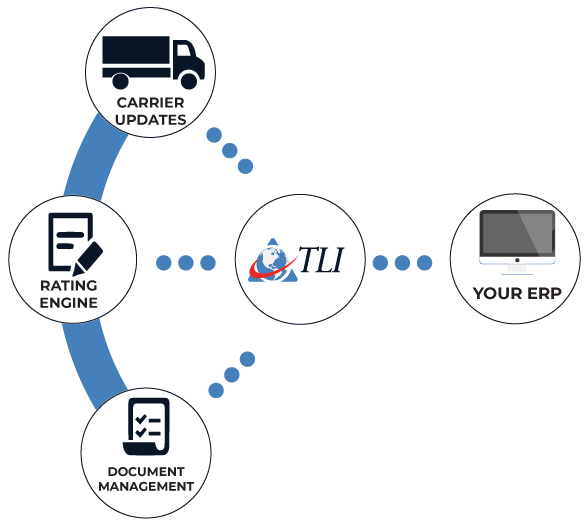
By leveraging sophisticated analytics embedded within the ERP, businesses can discern trends, predict fluctuations in demand, and streamline workflows. This predictive analysis empowers proactive measures like inventory optimization, demand forecasting, and preemptive issue resolution.
While cost savings remain a significant benefit, the integration of TMS into ERP extends its advantages far beyond financial gains. Operational excellence becomes attainable as businesses enhance agility, responsiveness, and reliability. Consequently, customer satisfaction is directly influenced, nurturing loyalty through punctual deliveries, precise order fulfillment, and superior service levels. It's worth noting that the TMS system merely illuminates the outcomes of services provided by the 3PL broker. Essential functions like freight audits, carrier sourcing events, and supply chain analytics are all brought into visibility through the TMS system.
In this era of rapid digitalization and data proliferation, the role of 3PL providers has evolved from service facilitators to strategic growth partners. Companies embracing this integration aren't merely adapting to change; they're proactively positioning themselves to thrive in an era where data-driven decision-making reigns supreme.
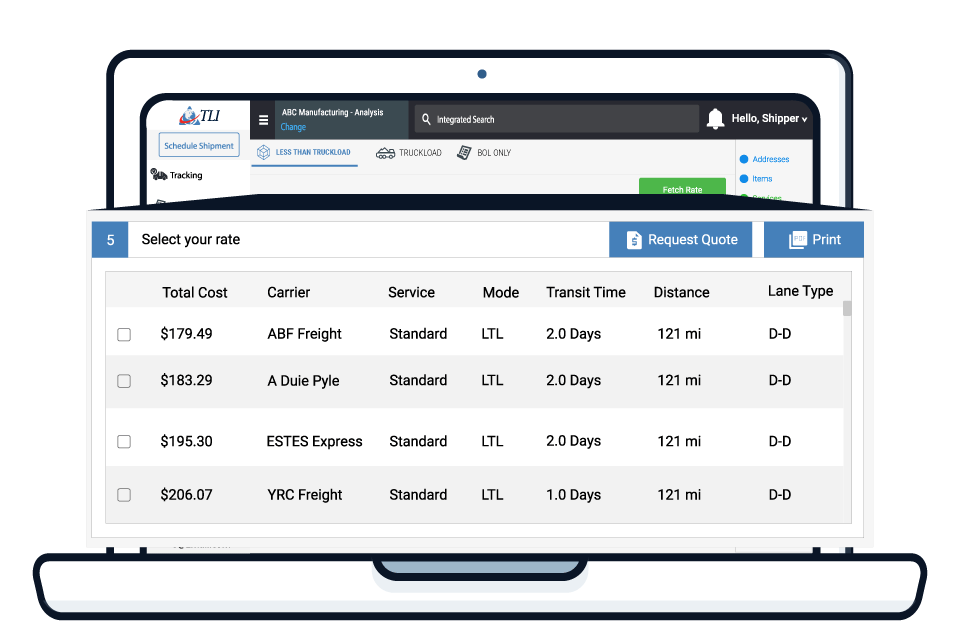
The value of 3PL companies have evolved beyond merely providing freight rates to becoming a crucial shipping partner enabling leveraging data and enhancing efficiencies. The integration of TMS into ERP systems signifies a significant milestone, enabling businesses to execute data-driven strategies that propel their supply chains into hyperdrive, rather than just managing one-off shipments.
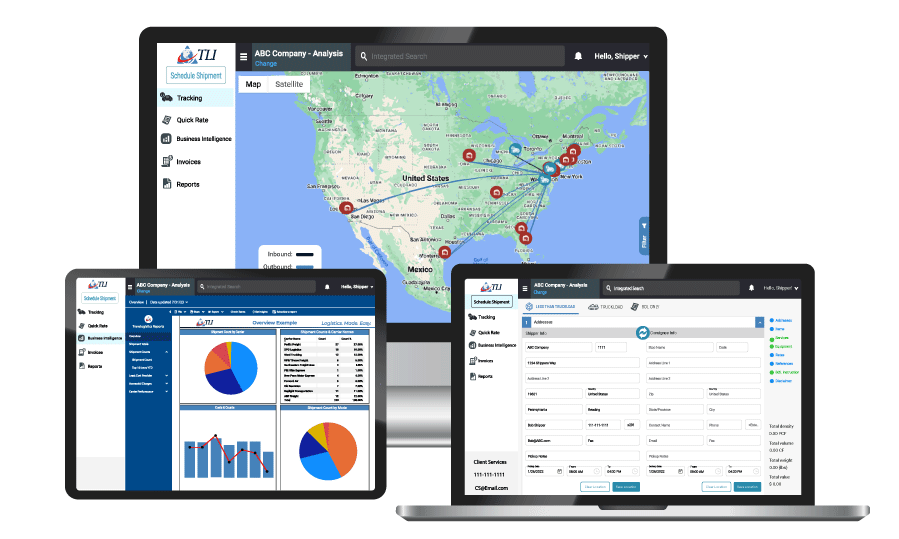
Partnering with a 3PL Company
3PL, short for Third-Party Logistics, stands as a transformative concept in the realm of supply chain management. Partnering with 3PL providers opens doors to a multitude of benefits, including enhanced flexibility, expert guidance, resource optimization, technology-driven solutions, and a sharper focus on core competencies. The essence of 3PL lies in its capacity to empower businesses, facilitating efficient product delivery, cost reduction, and the surpassing of customer expectations.
In an era where logistics complexities are on the rise, recognizing the value of 3PL can propel businesses towards success in a constantly evolving marketplace. Therefore, embrace the potential of 3PL and embark on a transformative journey to unlock the full prowess of your supply chain.
Common Questions Concerning 3PL Companies
What is it like working with a 3PL?
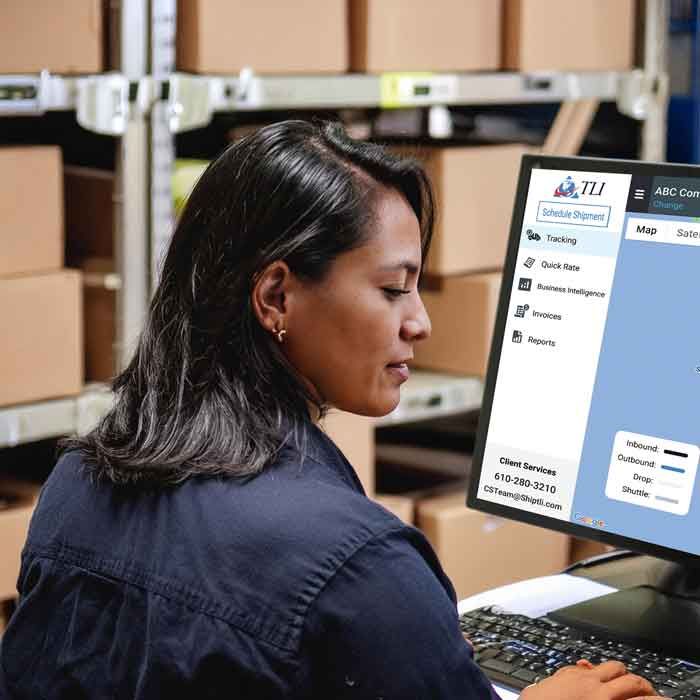
Working with a 3PL offers cost benefits such as securing competitive market prices from carriers and providing affordable warehousing solutions tailored to your needs and budget.
What is reverse logistics?

Reverse logistics involves handling shipping tasks such as returns management, refurbishment, recycling, and disposal.
TLI provides shippers with a vendor routing portal that improves visibility and offers shipment savings through the utilization of a dynamic rating engine.
Are 3PL companies asset based?
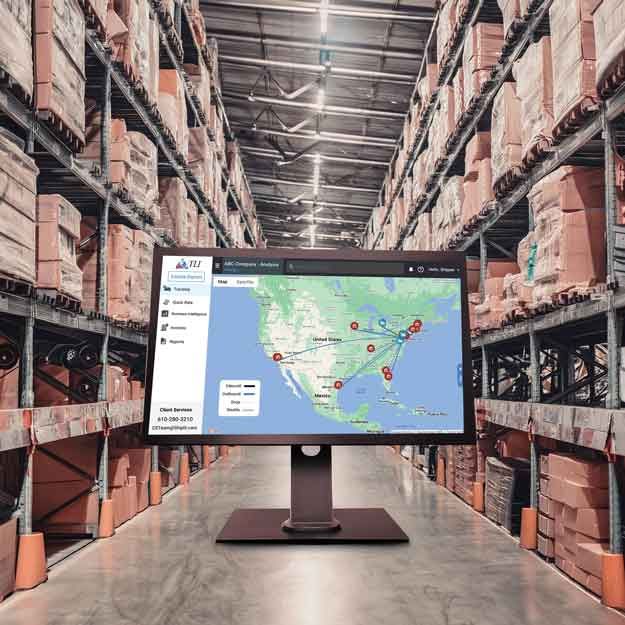
An asset-based or asset-light 3PL possesses some or all of the assets required to execute and oversee a customer's supply chain. These assets may include trucks, warehouses, distribution centers, and more. This setup can be attractive to clients seeking a logistics company to fully assume control of their supply chain operations.
What is fourth party logistics?

Fourth-party logistics (4PL), alternatively termed Lead Logistics Provider (LLP), represents a business model wherein a company delegates its supply chain management and logistics to a sole external service provider. The 4PL serves as the primary liaison between the customer and various other logistics service providers and carriers.
TLI offers 4PL services to large shippers.
Is 3PL worth it?

Outsourcing to a 3PL grants the advantage of selecting from various shipping carriers and negotiating optimal prices. With access to larger shipping volumes and established carrier relationships, 3PLs often secure lower rates than individual shippers. Utilizing technology tools like a dynamic rating engine enables them to conduct tariff comparisons beyond the capabilities of most shippers.
What are the benefits of hiring a 3PL?

Partnering with a 3PL will yield cost savings on a per-order basis compared to internally managed operations. This holds true particularly for companies with non-seasonal businesses. By consolidating multiple shippers into one program, a 3PL can execute advanced TMS technology services and supply chain automation.
TLI Insights
Get the latest logistics insights and tips from Translogistics’ award-winning team. Stay ahead in transportation planning.
Questions? Email us at marketing@tli.email



